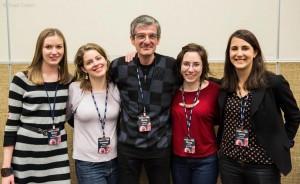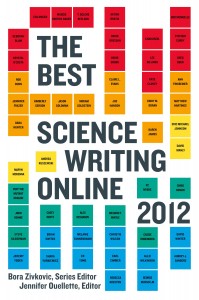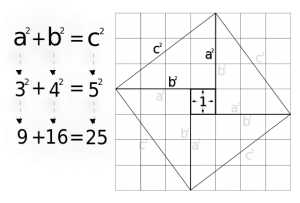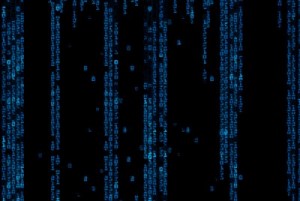I recently had the privilege of attending the Science Online conference in Raleigh, NC. The conference, hosted by North Carolina State University, has been described as “returning to the mothership” for bloggers, social media enthusiasts, journalists, writers and scientists passionate about communicating online. I heard a few people this year saying they didn’t feel that way, but I guess I drank the kool-aid, because I certainly did.
Attending Science Online in person was something I wanted to do because blogging and social media isn’t a part of my full time science writing job, but it’s still extremely important to me. Communicating effectively means using whatever platforms fit the story the best, and I feel like I do some of my best writing on this blog. I get to be my own editor (which comes with some pressure) but I also get the freedom to explore whatever I feel like I need to talk about, to share what I love and to hopefully help other people learn new things or be encouraged to try writing themselves.
I owe so much to Bora Zivkovic, blogs editor at Scientific American and co-founder of Science Online, for bringing me and my little blog into this community. Attending Science Online in person really did feel like coming home. I know a lot of people have said that before, but for me it was actually the first time I felt like I belonged in such a large group. I’ve been on teams, in clubs, in a sorority, in a grad program, and have held jobs where I’ve gotten to work alongside other science writers – I say with all sincerity that I’ve never felt so comfortable being my true self around so many different people, and that’s coming from an extrovert.
So, now that I’ve established that I’m all-in on the love-fest aspect of Science Online, what were the highlights?
- As a first time attendee, I was completely floored and honored by everyone who came up to talk or say hello. It was wonderful to meet in person people whose writing I’ve admired and been inspired by. One of my favorite comments that I received was that I have a good twitter avatar because online me looks like real me, so I was fairly easy to spot.
- Actually rallying the nerve to take the microphone and talk about my own experience keeping up my blog and twitter while working full-time for an organization. I was in the session on what to do when people start taking your online rambling seriously, and I added the point that when looking for a job I actually used my blog and twitter as part of my resume. I’ve never tried to hide my online activities, so I still feel comfortable being myself online, even though I now also represent my employer.
- Attending the session on using personal narrative to tell stories really got me thinking about how much of myself I put into my blogging and social media. One of the most important points is that personal narrative can be effective, but it needs to serve a purpose ie: don’t put yourself in the story just to have yourself in the story.
- On a similar note, I thought the session on thinking beyond text was also really valuable and I took away the same idea: multimedia needs to serve a purpose. Don’t use audio, video, etc. just to use it, make sure it helps the story. One of the ideas that I tweeted was that you don’t have to do all of the things all the time – I’m a firm believer in doing what you enjoy the most. I am, as Ed Yong said, “a committed text-monkey” so it makes sense to partner with people who love multimedia when I want to tell a story in a different way.
- From the session on fighting bullshit in the science communication ecosystem (aside from some fantastically tweetable one-liners, see below) I took away the idea that to counteract inaccurate stories, or you know stories that are mind bogglingly ridiculous, we as a community need to be as loud as the people who are spreading the bad story. We need to amplify our impact when we do debunking.
- I had several great conversations about my decision to take a job in communication rather than pursue a standard journalism job. My ideas on this are still percolating (and I suggested it as a session at #scio14 with Kate Prengaman) but it has been bugging me for a while that there is this perception that journalism is somehow better than communication, and that if you take a communication job you can never ever go back to being a journalist ever again. Ever. One reason it bugs me is because by that definition I am, already, an epic failure. Wasn’t exactly my life goal. I do something I love, so clearly I don’t agree with that, and I’m tired of hearing it. Especially for stressed out grads or recent-grads, it feels like your entire career hangs in the balance if you don’t land that perfect journalism job right out of the gate- I think that’s ridiculous.
- It was really interesting to me to witness the unraveling of the session on explanatory journalism with of all things, what I interpreted as miscommunication between the points that were trying to be made by well, I think everyone? It felt like the scientists and journalists in the room were spinning their wheels after a while, and I can’t wait to see how the conversation evolves in the future.
- One of the things I enjoyed the most throughout the conference were the people who followed along with my tweets, and replied to me or added to the discussion. You are all awesome.
- Listening to Diane Kelly tell the story of the first time she met Carl Zimmer when they were in their 20’s was awesome. It really drove home for me how the friends and colleagues I make now could end up as life-long connections. You should also check out her TEDMed talk, because it is great.
- I am so excited at the idea that is floating around to start a regional Science Online in Boston. If you’re interested in joining us to try to get this off the ground check out #sciobeantown on Twitter and make sure to let Karyn know you are interested.
A few other things:
- Remember that time on the first night I ended up in a conversation with Ed Yong, Carl Zimmer, and David Dobbs? At. The. Same. Time. It might have included an inner dialogue that went something like: “you can do this, they are just people, say words.”
- I put my livetweeting skills to the test, ended up in battle, and emerged victorious (though, there was talk about it being a draw by those nicer than I, also a few accusations of intimidation – which I know nothing, absolutely nothing about.)
- After receiving copies of Spillover by David Quammen, My Beloved Brontosaurus by Brian Switek, Mastermind: How to Think Like Sherlock Holmes by Maria Konnikova and The Philadelphia Chromosome by Jessica Wapner I might just have to revive the book reviews section of my blog.
- I am perfectly dreadful at origami.
- I was able to meet Michelle Banks (aka Artologica) and bought an awesome painting. There is some great stuff in her Etsy shop.
- We managed to squeeze in a great Sci4hels brainstorming session, and I am so excited for Helsinki and our panel on the Killer Science Journalists of the Future (it was also awesome to have Bora, Lena, Rose, Kathleen and myself in the same place for the first time!)
- One of my favorite things to witness was Perrin Ireland’s live storyboarding of the session discussions, it was completely amazing.
- Pie is a serious issue, and I can read a dessert menu with the best of them.
- As a last thought I want to take the time to say thank you to Karyn Traphagen, Bora Zivkovic and Anton Zuiker because this conference takes a lot of work, and it is run with so much dedication and care. I want to thank everyone in this community, whether you made the trip to Raleigh or not, because you make my life so much better by sharing your thoughts and insights. A last thank you to everyone who shared a story, let me share my own, and had a good laugh with me – meeting you was truly the best thing about Science Online.
Also, this:
For more posts on the conference check out the list from the Scio13 Planning Wiki.
















